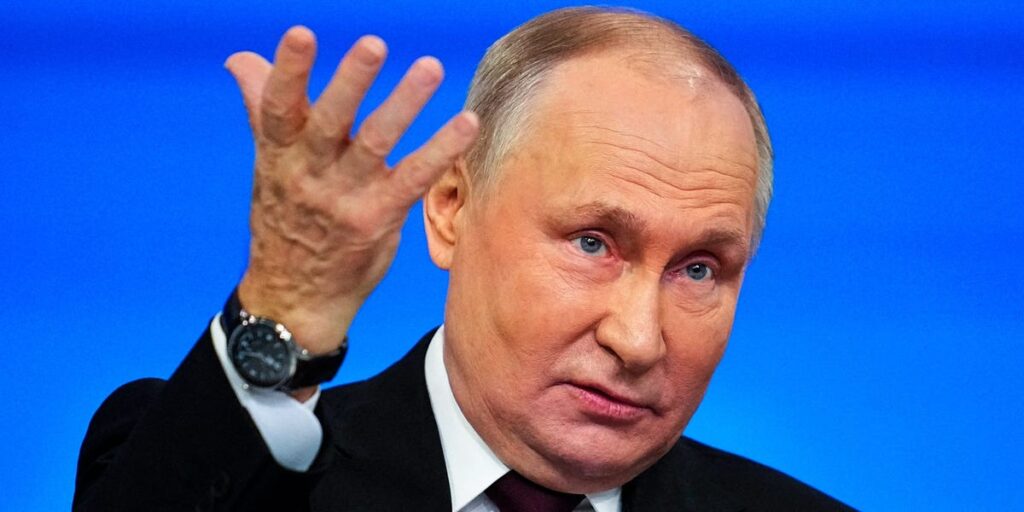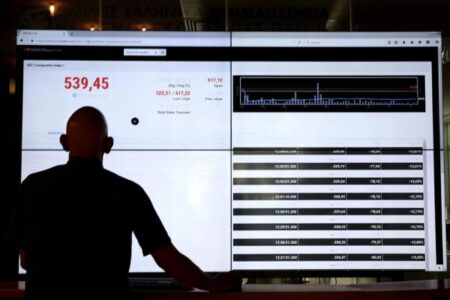Russia’s energy sector has taken a hit from Western sanctions.
But Moscow doesn’t appear ready to acknowledge that it’s not in a financial position to cut Europe off from its natural gas exports completely.
In an interview with Sky News Arabia on Friday, Russian Foreign Minister Sergey Lavrov said Russia hasn’t cut off gas exports to Europe because Russians are “decent people.”
“We are decent people. We signed long-term contracts with Europe,” Lavrov said.
“We always honor our obligations, unlike Europe or the United States,” Lavrov added.
Besides, as Lavrov said, Russia and Europe’s gas deals benefit both sides.
“If cooperation is mutually beneficial, why shoot yourself in the foot?” he asked.
What Lavrov didn’t outright address in the interview is the more likely reason Russia continues to export to Europe: It needs the money.
Russia’s oil and gas profits are under pressure
Before starting the war in Ukraine and being sanctioned by the West, Russia supplied as much as 40% of Europe’s gas. That declined to roughly 15% at the end of 2023 after three out of four Nord Stream pipelines carrying Russian gas to Europe were damaged. The remaining Nord Stream pipeline has never been commissioned, and Russia was already slowing its gas flows to Europe before the blast.
Now, Russia’s oil and gas profits are under pressure from sanctions and restrictions — including a G7 price cap on its crude oil exports — as its war with Ukraine heads into its 31st month.
Russia’s oil and gas revenues hit 8.82 trillion rubles, or $94.6 billion, in 2023. That’s 24% lower than the 11.6 trillion rubles it recorded in 2022, when revenues jumped due to oil price volatility. In 2021, Russia’s oil and gas sales revenue stood at 9 trillion rubles.
Russia has raised its forecast for its oil and gas sales this year, but the breakeven oil price has also risen significantly since the war started. That’s due to sanctions-related factors, such as higher Russian-underwritten insurance premiums and shipping costs related to a dark fleet transporting the commodities.
According to S&P Global, Russia’s breakeven oil price was $62 a barrel in 2021. It’s now $94 a barrel.
Higher breakeven prices eat into profits, which would hit Russian energy firms and have a spillover impact on the war economy — which appears resilient but is fighting multiple challenges. There’s also the question of how well Russia’s economy is really doing; in July, a group of eight European finance ministers said outright that Russia is lying about its booming economy.
To be sure, other geopolitical factors could also be playing into Russia’s decision to keep natural gas exports moving into Europe. But the role oil and gas play in Russia’s economy can’t be understated.
The oil and gas industry accounts for 30% to 50% of Russia’s federal budget revenue, the Oxford Institute for Energy Studies estimated.
Bloomberg estimates that Russia could lose as much as $6.5 billion a year if Naftogaz, Ukraine’s state-run energy giant, doesn’t renew a gas-transit deal that expires this year. This deal allows Russian gas to be transported to Europe via Ukraine.
While Russia has managed to pivot to alternative markets, the commodities are often sold at huge discounts due to sanctions, according to an S&P Global report last month.
“Russia has managed to sustain its oil production and exports despite Western sanctions and OPEC+ cuts, although it has faced challenges with its oil cash flows,” wrote Svetlana Tretyakova, a senior analyst at Rystad Energy, in late August.
Read the full article here
















